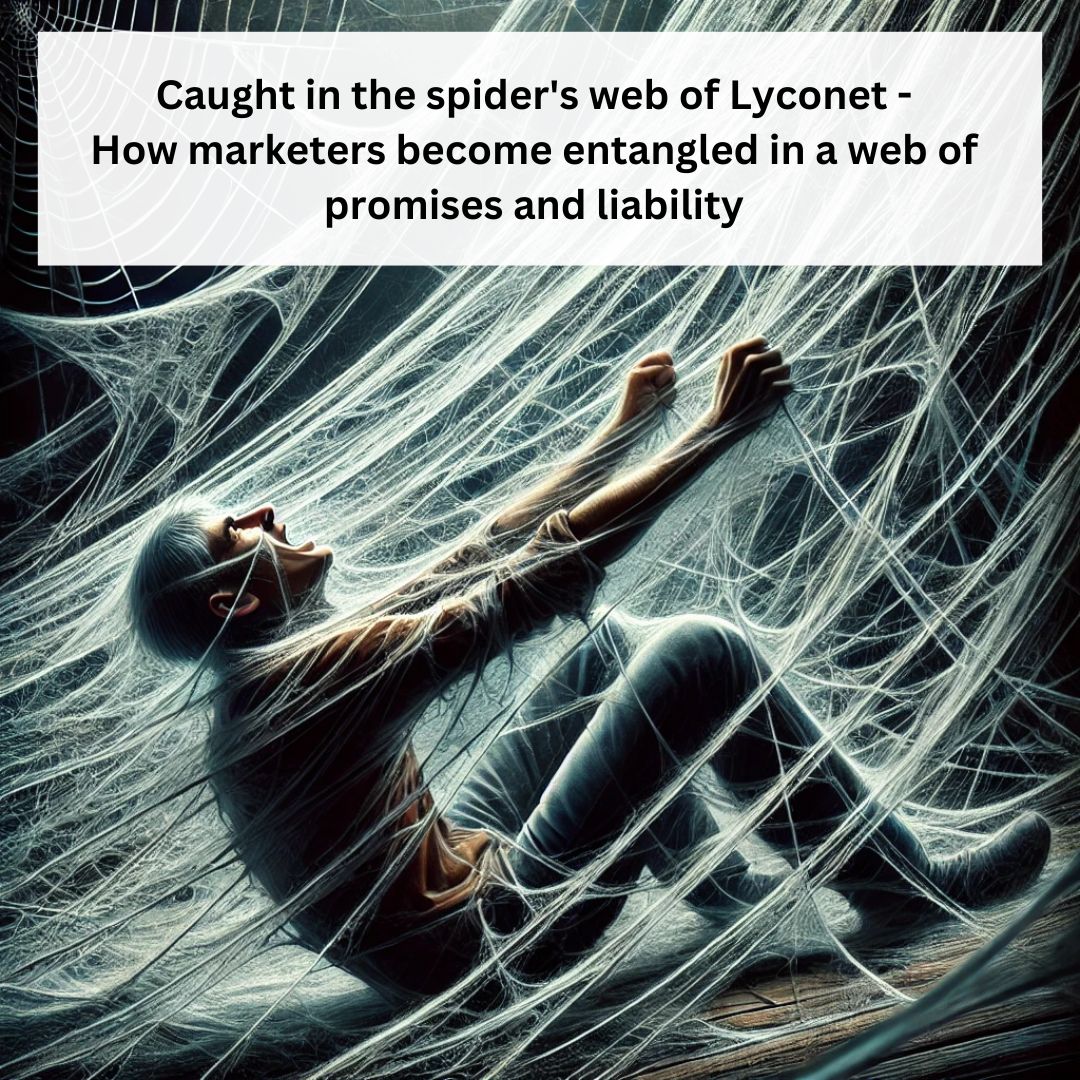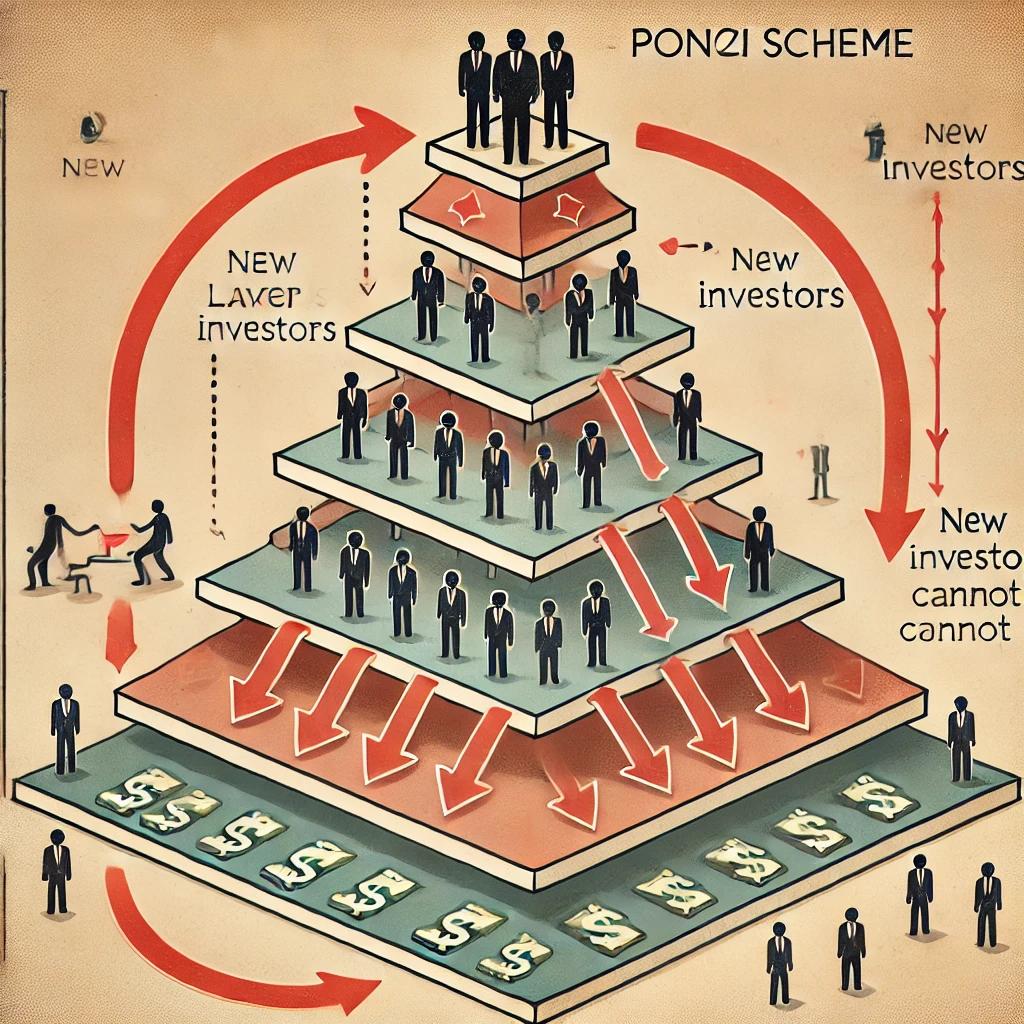Liability instead of freedom: The risky reality for Lyconet marketers
Working as a marketer for Lyoness/Lyconet/myWorld can seem like a promising business opportunity at first glance. With promises of high bonuses, passive income and financial independence, many are lured into the network. However, the reality shows a different picture: marketers who work for this company expose themselves to considerable legal and financial risks. In this article, we shed light on the specific risks and liability that marketers should be aware of.
Participation in an illegal pyramid scheme
Several court decisions in various countries have categorised the Lyoness/Lyconet/myWorld business model as such.
Liability risk: Intermediaries who knowingly or negligently participate in illegal sales structures can be held personally liable, even if they are unknowingly involved in the dissemination of an unauthorised business model. This also includes misleading business practices such as ‘pressure selling’. Such actions can result in criminal penalties, including fines and, in the worst case, imprisonment.
Liability for misleading advertising
Many marketers advertise the business model with promises made to them in official training courses. These promises often include high returns and an almost risk-free passive income. However, courts have repeatedly ruled that such promises are misleading.
The risky reality for Lyconet marketers
Liability risk: According to Section 16 of the Unfair Competition Act (UWG), an example of German law, marketers who make such promises can be held liable for misleading advertising. False or exaggerated claims intended to persuade consumers to conclude transactions can also be a criminal offence. This can result in severe fines and, under certain circumstances, even legal consequences.
Violation of transparency obligations
According to Lyconet’s Code of Ethics, marketers are obliged to provide transparent and honest information about the business model and the associated risks. In practice, however, this transparency is often not given, as Lyconet conceals the truth about the system and deliberately withholds it from marketers. Intermediaries who conceal full information about the risks and the legal nature of the business model can be prosecuted.
Liability risk: Concealment or inadequate information about the actual risks can lead to claims for damages. Affected members who suffer financial losses as a result of the business model can sue the marketers who introduced them to the system. As already reported, no support from the company is to be expected in such cases.
Risk of personal liability in the event of violations
A marketer’s obligations under the Lyconet Compensation Plan and Code of Ethics include not disclosing confidential information and strictly complying with the law. Breaches of these obligations can also have legal consequences. This makes it all the more annoying that the company itself ignores these requirements and shirks its responsibility.
Liability risk: Breaches of confidentiality or involvement in illegal activities can result in marketers being liable for any damages incurred. This applies to both civil law claims and possible criminal law consequences.
The Lyconet disclaimer: Marketers bear the burden
A particularly critical point is the disclaimer that Lyconet has included in its contracts and agreements. This disclaimer states that the company accepts no responsibility for the actions of marketers. Even if marketers merely repeat the instructions and promises made in the company’s official training courses, the company leaves them alone in the event of an emergency. Lyconet protects itself with comprehensive disclaimers and assumes no responsibility for any legal problems that marketers may encounter. In the event of legal disputes, marketers bear the full risk and burden of the consequences, while the company distances itself.
Working as a marketer for Lyoness/Lyconet/myWorld harbours considerable risks that many do not initially recognise. From possible involvement in an illegal pyramid scheme to liability for misleading advertising and the legal consequences of breaching transparency obligations – the risks are manifold and can have serious consequences. Anyone who works for this company, or would like to work for it, should be aware of these risks and consider carefully whether they want to take on this responsibility.
With this article, we hope to have provided some clarity about the practices of Freidl and his fellow campaigners.





Leave a Reply
Want to join the discussion?Feel free to contribute!